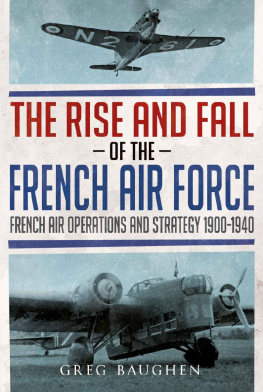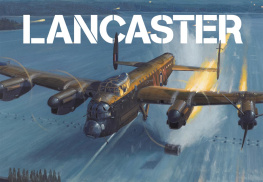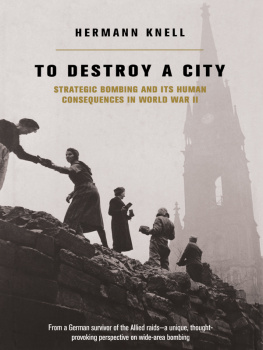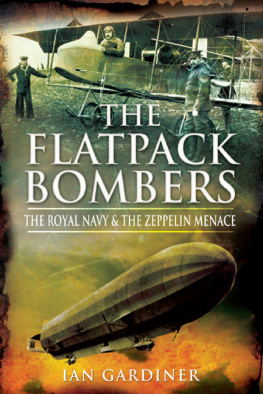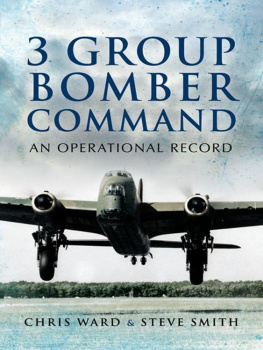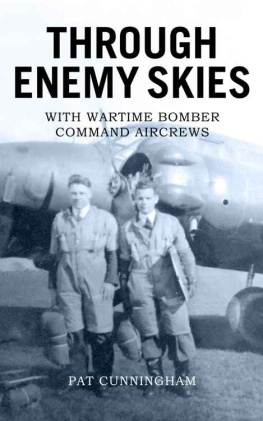RAF
AT THE
CROSSROADS
The Second Front and Strategic Bombing Debate, 19421943
Greg Baughen
RAF AT THE CROSSROADS
The Second Front and Strategic Bombing Debate, 19421943
First published in Great Britain in 2021 by
Air World
An imprint of
Pen & Sword Books Ltd
Yorkshire Philadelphia
Copyright Greg Baughen, 2021
ISBN 978 1 52679 534 2
Mobi ISBN 978 1 52679 536 6
ePUB ISBN 978 1 52679 535 9
The right of Greg Baughen to be identified as Author of this work has been asserted by him in accordance with the Copyright, Designs and Patents Act 1988.
A CIP catalogue record for this book is available from the British Library.
All rights reserved. No part of this book may be reproduced or transmitted in any form or by any means, electronic or mechanical including photocopying, recording or by any information storage and retrieval system, without permission from the Publisher in writing.
Pen & Sword Books Limited incorporates the imprints of Atlas, Archaeology, Aviation, Discovery, Family History, Fiction, History, Maritime, Military, Military Classics, Politics, Select, Transport, True Crime, Air World, Frontline Publishing, Leo Cooper, Remember When, Seaforth Publishing, The Praetorian Press, Wharncliffe Local History, Wharncliffe Transport, Wharncliffe True Crime and White Owl.
For a complete list of Pen & Sword titles please contact
PEN & SWORD BOOKS LIMITED
47 Church Street, Barnsley, South Yorkshire, S70 2AS, England
E-mail:
Website: www.pen-and-sword.co.uk
Or
PEN AND SWORD BOOKS
1950 Lawrence Rd, Havertown, PA 19083, USA
E-mail:
Website: www.penandswordbooks.com
Acknowledgements
My thanks to the staff of the National Archives, the Imperial War Museum and RAF Hendon for all their help over the years. Thanks also to Phil Butler for images provided and Les Whitehouse for the Boulton Paul images and line drawings. Thanks also to Stephen White for finding the time to provide me with some insights into more recent official British thinking on military doctrine. Finally thanks to all those who have kept this series going by buying the books.
Addendum to RAF on the Offensive .
Page 8, E.8/39 should be E.28/39.
Page 160, The comments credited to Hugh Trenchard were in fact made by John Slessor following a discussion with Trenchard.
Introduction
The year 1942 dawned with Britain facing a new enemy in the Far East and British forces yet again in headlong retreat. More defeats at the hands of the Japanese seemed inevitable. The short-term prospects looked bleak, but the future looked a lot brighter than it had eighteen months before. In the summer of 1940, Britain had stared defeat in the face and survived, but as summer gave way to autumn, and the German invasion barges dispersed, the long-term prospects still seemed poor. The threat of invasion and the danger of defeat were far from over and, even if this could be avoided, it was difficult to see how Britain could go on to win the war. The country was facing the mighty German war machine alone and defeating the German Army seemed beyond the means of Britain, even with the resources of an Empire.
The only route to victory appeared to be an entirely new method of warfare, one which would see an enemy dissected by precision strikes from the air. Its key industries would be picked out and eliminated and its people left terrorised, begging to be spared the continuous onslaught. It was the war-winning strategy the Air Staff had always believed in. The military defeat in France suddenly made it the only way Britain had of winning the war. In this scenario there would be no need to defeat the German Army. Bombing would destroy the ability and will of the German nation to continue the struggle. Germany would find herself in the same situation she had been in the autumn of 1918, willing to accept a ceasefire at any price to spare the country further destruction. The military reoccupation of the territories Germany had conquered would be a mere formality.
After a year of such wishful thinking, the Butt report in August 1941 left no one in any doubt about the stark reality: the bombing strategy was not working. Most bomber crews were not even finding their targets, never mind hitting them. Air Chief Marshal Charles Portal, the Chief of Air Staff, believed a staggering frontline strength of 4,000, perhaps even 6,000, heavy bombers would be required to achieve success. It was a demand that just seemed to prove that victory by bombing was well beyond the financial and industrial means of the country. The vision of victory through strategic bombing seemed to be a fantasy.
Winning by bombing alone had always been a speculative strategy. There had never been any evidence that the bomber could win wars on its own and none had emerged in the first two years of the current conflict. Contrary to pre-war expectations, it was not long-range bombing that had brought quick victories; it was mechanised armies with air support that were proving decisive. Was it too late to change tack? Should Britain be learning from the Wehrmacht rather than assembling huge bomber fleets to pound the enemy into submission?
Much had changed since Churchill had declared the bomber strategy was the only way Britain had of defeating Germany. Britain now had powerful new allies. Germany had invaded the Soviet Union in June 1941. No one had expected the Red Army to last any longer than the Wehrmachts previous victims but, six months later, despite suffering many crushing defeats, Soviet forces were pushing the German Army back from the gates of Moscow. The United States was also now in the war. The new Big Three coalition had more manpower and industrial resources than the Axis countries ranged against them. Churchill was fast losing faith in the bomber strategy and no longer saw it as the only route to victory. With these new powerful allies there was no longer any need to rely on the bomber. The Allies had the means to defeat the Axis armies on the field of battle.
Allied troops were already winning significant victories. It was not just the Soviet Army that was advancing. In the Western Desert, General Claude Auchinlecks Crusader offensive was driving Field Marshal Erwin Rommels Afrika Korps back, using the sort of air support that German commanders had so often made such good use of. It was a work in progress but the practical problems of ground and air forces working together were being tackled.
On the Home Front, however, there had been far less progress. After more than two years of war, the air support Allied armies needed and the British Army would have needed to help repel an invasion had still not been put in place. It was a failure that left the country perilously vulnerable. Even the mighty Red Army, with an air force dedicated to supporting its ground forces, had struggled to hold the formidable Wehrmacht. The British had the English Channel to buttress the defence but, even so, the much smaller British Army would be bound to struggle if it had to fight the superbly equipped and led German Army without substantial and effective air support.


